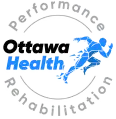At Ottawa Health: Performance and Rehabilitation, our goal is to provide effective solutions for lateral epicondylitis, commonly known as tennis elbow, in Ottawa. We combine advanced techniques and personalized care plans to reduce pain, restore function, and enable our clients to resume their daily activities without hindrance.
Understanding Lateral Epicondylitis
Lateral epicondylitis is characterized by pain and tenderness on the outer side of the elbow, often caused by repetitive use of the forearm muscles and tendons. This repetitive strain leads to inflammation and small tears in the tendons attaching to the lateral epicondyle, the outer part of the elbow.
Causes of Lateral Epicondylitis
Factors contributing to lateral epicondylitis include:
- Repetitive movements of the wrist and arm.
- Overuse of the forearm muscles.
- Engaging in activities that require gripping or lifting.
Recognizing these causes is crucial for preventing lateral epicondylitis and developing effective treatment plans.
Symptoms of Lateral Epicondylitis
Common symptoms include:
- Pain and tenderness on the outer side of the elbow.
- Weakened grip strength.
- Pain that may extend into the forearm.
Addressing these symptoms early can prevent the condition from worsening and ensure a faster recovery.
Our Approach to Managing Lateral Epicondylitis
At Ottawa Health: Performance and Rehabilitation, we focus on creating detailed and personalized treatment plans to alleviate symptoms, facilitate recovery, and prevent future occurrences.
Thorough Evaluation
Our evaluation process involves a comprehensive assessment to accurately diagnose lateral epicondylitis and determine its severity. This may include physical examinations and other diagnostic tests.
Customized Treatment Plans
Recognizing the uniqueness of each case of lateral epicondylitis, we design individualized treatment plans tailored to meet your specific needs and objectives.
Physiotherapy: A Key Component of Treatment
Physiotherapy plays a vital role in our treatment strategy, aiming to reduce tendon irritation, strengthen muscles, and enhance elbow function.
- Manual Therapy: We utilize techniques like massage and joint mobilization to relieve pain and improve mobility.
- Targeted Exercises: Our exercise regimens aim to strengthen forearm muscles, enhance flexibility, and decrease tendon stress.
Ergonomic Adjustments and Lifestyle Guidance
In addition to our treatments, we provide advice on ergonomic adjustments and lifestyle changes:
- Ergonomic Suggestions: Recommendations for modifying work and daily activities to reduce strain on the elbow.
- Lifestyle Recommendations: Guidance on activities and habits that aid in recovery and prevent recurrence.
Our Services
Ottawa Health: Performance and Rehabilitation offers a wide range of treatments for musculoskeletal conditions, with a dedicated team in Ottawa committed to delivering personalized care tailored to your specific health requirements.
- Physiotherapy Clinic
- Chiropractic Care
- Custom Orthotics
- Massage Therapy Services
- Cupping Therapy Treatment
- Shockwave Therapy Treatment
- Lumbar Spinal Stenosis Care
- Physiotherapy for Motor Vehicle Accidents (MVA)
- GLA:D Physiotherapy Program
- Holistic Nutritionist Services
Why Ottawa Health: Performance and Rehabilitation?
Choosing Ottawa Health: Performance and Rehabilitation means selecting a clinic dedicated to your recovery and well-being. Our expertise in innovative treatments and client-focused care sets us apart.
Our Commitment to You:
- Effective care from skilled rehabilitation experts.
- A nurturing environment that supports recovery.
- Personalized treatment plans for optimal outcomes.
Regain Control Over Your Life
If tennis elbow is affecting your daily life, contact Ottawa Health: Performance and Rehabilitation in Ottawa. Our team is prepared to create a customized treatment plan tailored to your specific needs and goals, guiding you toward a swift and successful recovery. Let us assist you in reclaiming comfort and functionality in your everyday activities.
Advanced Treatments for Common Elbow Conditions
|
|
FAQs About Lateral Epicondylitis Treatment in Ottawa
Can Lateral Epicondylitis Be Prevented?
Preventing lateral epicondylitis involves making ergonomic adjustments and modifying activities that strain the forearm muscles. This includes taking regular breaks from repetitive tasks, using correct equipment and techniques during physical activities, and performing exercises to strengthen the forearm muscles. Early intervention upon noticing symptoms can also significantly reduce the risk of developing severe lateral epicondylitis.
How Long Does Recovery from Lateral Epicondylitis Take?
The recovery time from lateral epicondylitis varies depending on the severity of the condition and the individual’s response to treatment. Most individuals experience significant improvement within a few weeks to months of starting treatment. However, complete recovery, especially for severe cases, might take longer. Adhering to the prescribed treatment plan, including physiotherapy exercises and lifestyle modifications, is essential for effective recovery.
What Lifestyle Changes Can Help Manage Lateral Epicondylitis?
Adopting lifestyle changes is crucial in managing and preventing lateral epicondylitis. This includes practicing proper body mechanics during activities involving the use of the arm and wrist. Implementing ergonomic adjustments at work and home to reduce strain on the forearm muscles is also beneficial. Additionally, engaging in regular stretching and strengthening exercises for the arm, wrist, and shoulder can improve muscle endurance and flexibility, potentially reducing the risk of recurrence.
Can Lateral Epicondylitis Recur After Treatment?
Yes, lateral epicondylitis can recur, especially if the initial causes, such as repetitive strain or overuse of the forearm muscles, are not adequately addressed. To minimize the risk of recurrence, it’s crucial to continue implementing ergonomic adjustments, lifestyle modifications, and forearm strengthening exercises even after symptoms have resolved. Regularly assessing and adjusting work and leisure activities to avoid excessive strain can also help prevent recurrence.
Ottawa Health: Performance and Rehabilitation
1535 Bank St, Ottawa, ON K1H 7Z1, Canada
(613) 728-9414
Hours:
Monday to Thursday: 8 AM – 7:30 PM
Friday: 8 AM – 8 PM
Saturday: 10 AM – 2 PM
Sunday: Closed

